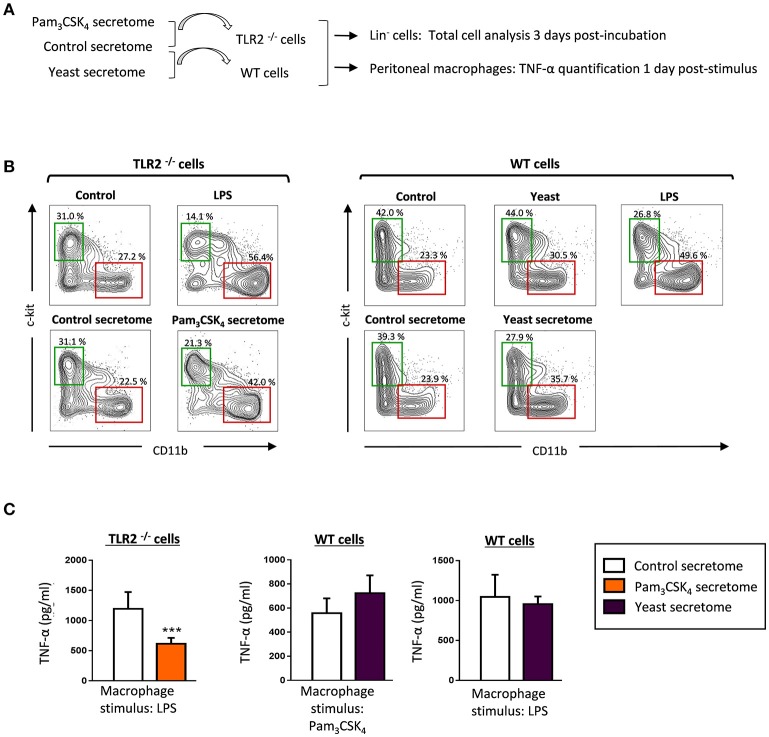Figure 7.
HSPC secretomes in response to C. albicans and the TLR2 agonist induce myeloid differentiation and modulate cytokine production by macrophages. (A) Schematic protocol (as described in section Materials and Methods) to study the effect of secretomes (obtained as indicated in Figure 5A) on HSPC differentiation and the production of TNF-α by peritoneal macrophages. HSPCs or peritoneal macrophages from TLR2 −/− mice were used to study the effect of the secretomes from HSPCs stimulated with Pam3CSK4. (B) Lin− cells were cultured at a density of 50,000 cells in 250 μl of secretomes for 3 days, labeled with antibodies, and analyzed by flow cytometry. Cells were gated as c-Kit or CD11b positive cells. The indicated percentages refer to total analyzed cells. Results shown are from one representative of two independent experiments. (C) Resident peritoneal macrophages were cultured at a density of 150,000 cells in 250 μl of the indicated secretomes, and challenged with Pam3CSK4 (100 ng/ml) or LPS (100 ng/ml) for 24 h. TNF-α levels in cell-free culture supernatants were measured by ELISA. Triplicate samples were analyzed in each assay. Results are expressed as means ± SD of pooled data from two experiments. ***P < 0.001 with respect to cytokine production by peritoneal macrophages in the presence of control secretome.

